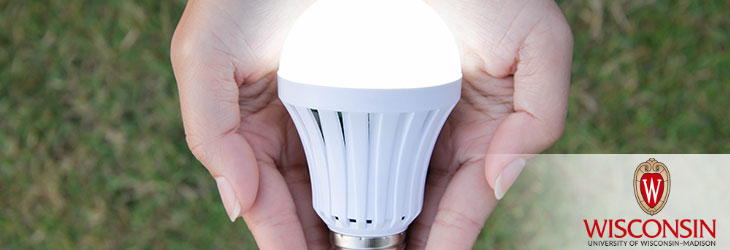Clean Technology

Slippery Antifouling Surfaces with Health, Environmental and Consumer Applications
WARF: P150342US02
Inventors: David Lynn, Uttam Manna, Matthew Carter
The Wisconsin Alumni Research Foundation (WARF) is seeking commercial partners interested in developing a new method for fabricating physically and chemically durable SLIPS on complex surfaces.
Overview
Slippery liquid-infused porous surfaces (SLIPS) are an emerging class of materials with unique properties. They possess useful antifouling characteristics, meaning they prevent other matter or organisms from accumulating on any surface containing the material. Unlike conventional non-stick surfaces, SLIPS are structured in a way that can host or immobilize oils, so the surface behaves as if it is already lubricated.
While research in this area is ongoing, fabricating SLIPS on complex surfaces such as curves and developing a better means to control their properties remain a challenge.
While research in this area is ongoing, fabricating SLIPS on complex surfaces such as curves and developing a better means to control their properties remain a challenge.
The Invention
UW–Madison researchers have developed a new approach for fabricating and functionalizing SLIPS on objects of arbitrary shape, size and topology (e.g., inside a hollow tube, etc.). The new SLIPS have greater control over how fluids behave when they come in contact. For example, they can be designed with oil-free regions to immobilize fluid droplets and/or control how they slide across the surface.
The new SLIPS are antifouling to bacteria, fungi and mammalian cells, and may be used for the controlled release of antibiotics and to prevent thick liquids or dirt from building up on a surface. They are fabricated via the infusion of oils into reactive polymer multilayers.
The new SLIPS are antifouling to bacteria, fungi and mammalian cells, and may be used for the controlled release of antibiotics and to prevent thick liquids or dirt from building up on a surface. They are fabricated via the infusion of oils into reactive polymer multilayers.
Applications
- New antifouling surfaces for marine or aviation use
- Antibacterial/fungal coatings
- Packaging, e.g., ketchup, mustard or mayo bottles that allow their contents to glide out while leaving no residue behind
Key Benefits
- Better means of manipulating the behavior of fluids that come in contact with the surface
- Chemically and physically durable, able to be tuned to a specific application
- Overcomes the challenges of fabricating/functionalizing SLIPS on complex surfaces
- Amenable to objects of almost any size, shape and topology
Stage of Development
The researchers have fabricated a number of nanoporous polymer coatings (~3.5 micrometers thick) functionalized to impart hydrophobic character. Silicon oil was infused for the model oil phase. The infused nanoporous films were subjected to a number of tests to demonstrate their capabilities and ability to retain their desired characteristics (e.g., repeated bending and flexing, creasing, stretching, deep scratching and surface abrasion).
SLIPS fabricated by infusion of silicon oil were stable and slippery when contacted with a broad range of chemically complex liquids (e.g., acidic and alkaline solutions, unfiltered eutrophic lake water, serum-containing cell culture medium, seawater and ketchup). Additional oils were also infused for comparison including canola, coconut and olive oil.
The development of this technology was supported by WARF Accelerator. WARF Accelerator selects WARF's most commercially promising technologies and provides expert assistance and funding to enable achievement of commercially significant milestones. WARF believes that these technologies are especially attractive opportunities for licensing.
SLIPS fabricated by infusion of silicon oil were stable and slippery when contacted with a broad range of chemically complex liquids (e.g., acidic and alkaline solutions, unfiltered eutrophic lake water, serum-containing cell culture medium, seawater and ketchup). Additional oils were also infused for comparison including canola, coconut and olive oil.
The development of this technology was supported by WARF Accelerator. WARF Accelerator selects WARF's most commercially promising technologies and provides expert assistance and funding to enable achievement of commercially significant milestones. WARF believes that these technologies are especially attractive opportunities for licensing.
Additional Information
Related Technologies
Tech Fields
For current licensing status, please contact Michael Carey at [javascript protected email address] or 608-960-9867